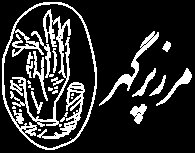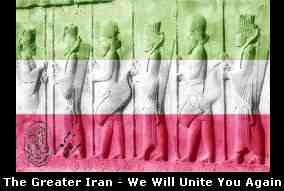Freed Iranian journalist remains defiant - Times Union

TEHRAN, Iran -- An Iranian dissident journalist freed after spending most of his six-year prison term in solitary confinement vowed Saturday to keep criticizing the hard-line clerical regime.
Akbar Ganji, 46, appeared gaunt and considerably older, with a long beard, as he received friends and family at his Tehran home a day after being released.
"My views have not changed at all. Jail and pressures never forced me to change my views. Today, I'm more determined to say what I said six years ago," said Ganji, who was on a hunger strike for about three months last year.
"My imprisonment was unjust and will remain a great injustice forever," he added to applause from his audience.
Ganji was jailed in 2000 after reporting on the killings of five dissidents by Intelligence Ministry agents. Authorities said the articles he wrote violated the law and insulted the authorities.
He became a hero to the country's reformists for standing up to hard-line clerics.
Many world leaders, including President Bush and U.N. Secretary-General Kofi Annan, called for Ganji's release because of his deteriorating health, but Iran's hard-line authorities rejected those demands.
A statement by Iran's judiciary said Ganji was freed on leave for Nowruz, the Persian New Year holiday beginning Tuesday. The holiday runs until April 3, and the statement said his prison sentence officially ends March 30, so it appeared unlikely Ganji would be taken back into custody.
Ganji's wife, Masoumeh Shafiei, said she was worried about his health. She said some of his friends initially had difficulty recognizing him.
"My husband is so weak physically now. He is just 49 kilograms (108 pounds)," she said handing out drinks to their guests. "But I'm happy he is back home."
Ganji came to prominence after his investigation of the 1998 murders of five dissidents by Intelligence Ministry agents.
The Intelligence Ministry blamed the killings on "rogue agents" within the secret service. But Ganji's articles in the newspapers Sobh-e-Emrouz, Khordad and Fath said the killings were ordered by senior hard-liners in the ruling Islamic establishment, including former Intelligence Minister Ali Fallahian.
Fallahian has denied any involvement.
Ganji's imprisonment coincided with a massive media crackdown by hard-liners against the reformist press when former President Mohammad Khatami's reformist agenda threatened the power of the unelected hard-liners.
Iran's hard-line judiciary has closed down more than 100 pro-democracy publications in the past five years, including the papers Ganji wrote for, on vague charges of insulting religious sanctities and top clerics.
In his writings, Ganji said Iran needs to stop granting absolute rule to a top cleric, currently supreme leader Ayatollah Ali Khamenei, who has the final say on all state matters.
Original Artilce
.42.jpg)


0 Comments:
Post a Comment
<< Home